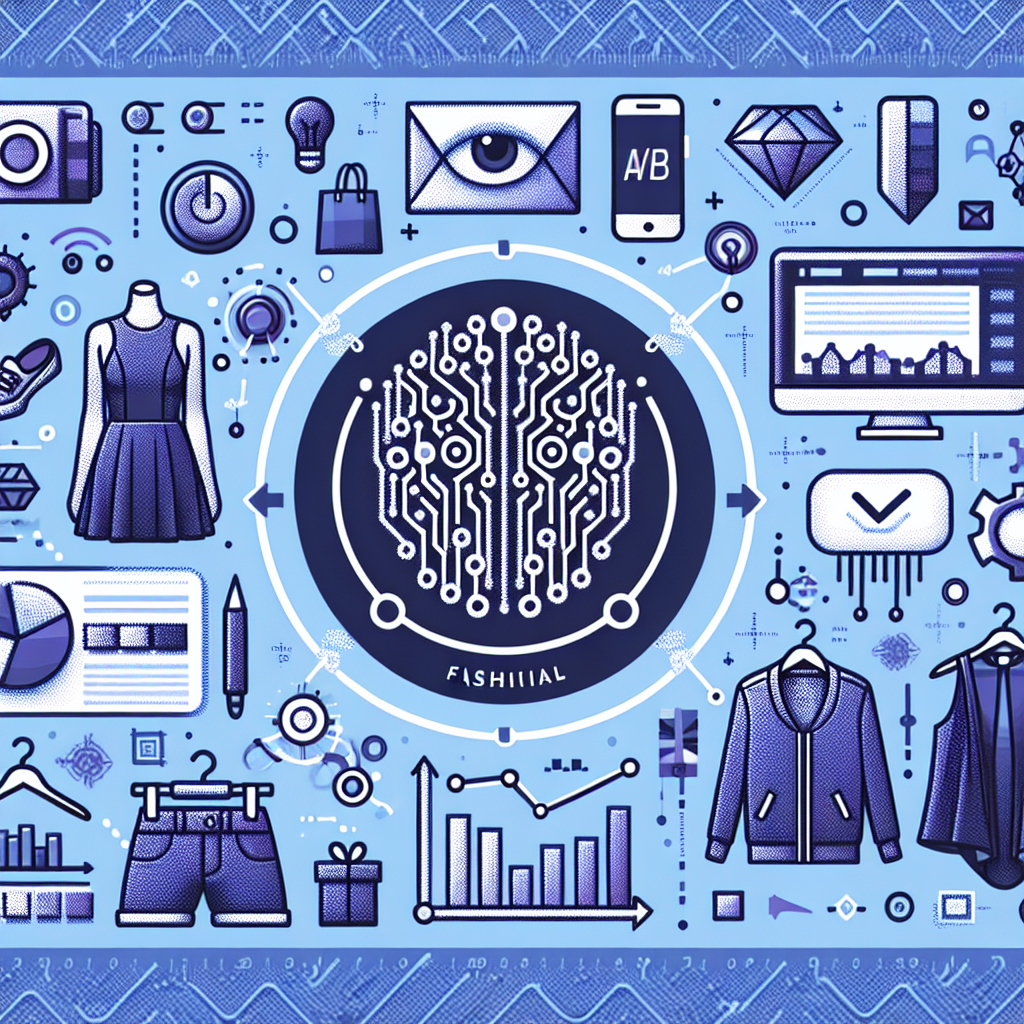Artificial Intelligence (AI) has been transforming various industries, and fashion retail is no exception. With the rise of e-commerce and the increasing demand for personalized shopping experiences, retailers are turning to AI to optimize their marketing campaigns and increase sales. One of the key tools that AI is using in this sector is A/B testing, a method that compares two versions of a webpage or marketing campaign to determine which one performs better. In this article, we will explore how AI is revolutionizing A/B testing in fashion retail and how it is helping companies to better understand their customers and drive more sales.
How AI is Revolutionizing A/B Testing in Fashion Retail
A/B testing has been a popular method for marketers to optimize their campaigns for years, but AI is taking this practice to a whole new level. AI algorithms can analyze vast amounts of data in real-time, allowing retailers to quickly test multiple variations of their campaigns and determine the most effective one. By leveraging AI, retailers can gain valuable insights into customer behavior, preferences, and buying patterns, which can help them to create more targeted and personalized campaigns.
One of the key ways that AI is revolutionizing A/B testing in fashion retail is through the use of machine learning algorithms. These algorithms can analyze customer data and behavior to predict which variations of a campaign are most likely to drive sales. For example, AI can analyze factors such as demographics, browsing history, and purchasing patterns to determine which products or offers are most likely to resonate with a particular customer segment. By using this data-driven approach, retailers can create more personalized and relevant campaigns that are tailored to the individual needs of their customers.
Another way that AI is revolutionizing A/B testing in fashion retail is through the use of predictive analytics. AI algorithms can analyze historical data and trends to predict future outcomes and optimize marketing campaigns accordingly. For example, AI can predict which products are likely to be popular in the upcoming season, allowing retailers to focus their marketing efforts on those products. By using predictive analytics, retailers can stay ahead of the competition and ensure that their campaigns are always on-trend and relevant to their customers.
AI is also revolutionizing A/B testing in fashion retail through the use of natural language processing (NLP) and sentiment analysis. These technologies can analyze customer reviews, social media posts, and other sources of customer feedback to understand customer sentiment and preferences. By analyzing this data, retailers can gain valuable insights into what their customers like and dislike about their products and campaigns, allowing them to make data-driven decisions about how to optimize their marketing efforts.
Overall, AI is revolutionizing A/B testing in fashion retail by enabling retailers to analyze vast amounts of data in real-time, predict future outcomes, and understand customer sentiment and preferences. By leveraging AI technologies, retailers can create more personalized and targeted campaigns that drive more sales and increase customer loyalty.
FAQs
Q: How does A/B testing work in fashion retail?
A: A/B testing in fashion retail involves creating two versions of a webpage, email, or marketing campaign and showing them to different groups of customers. By analyzing the performance of each version, retailers can determine which one is more effective at driving sales and engagement.
Q: What are the benefits of using AI for A/B testing in fashion retail?
A: AI can analyze vast amounts of data in real-time, predict future outcomes, and understand customer sentiment and preferences. By leveraging AI, retailers can create more personalized and targeted campaigns that drive more sales and increase customer loyalty.
Q: How can retailers get started with AI-powered A/B testing?
A: Retailers can start by partnering with AI technology providers that specialize in A/B testing and marketing optimization. By working with experts in the field, retailers can leverage the latest AI technologies to analyze customer data, predict future outcomes, and optimize their marketing campaigns for success.
In conclusion, AI is revolutionizing A/B testing in fashion retail by enabling retailers to analyze vast amounts of data in real-time, predict future outcomes, and understand customer sentiment and preferences. By leveraging AI technologies, retailers can create more personalized and targeted campaigns that drive more sales and increase customer loyalty. As the industry continues to evolve, we can expect to see even more innovative uses of AI in A/B testing and marketing optimization in the future.

